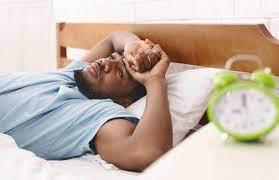Joseph R. Anticaglia MD
Medical Advisory Board
Do you have trouble awakening in the morning? Do you nod off during the day? Do you find it difficult to concentrate in the course of the day? If you answered yes to these questions, there are steps you can take to improve your sleep.
We need sleep to remain physically strong and mentally alert. During sleep, the brain actively renews our energy, repairs and rebuilds our tissues — and provides us with rest. The body utilizes two sleep periods called non-REM sleep, and REM sleep to keep us healthy. The former is needed for our physical health. Rem sleep is needed for our mental and cognitive health.
Most adults require seven to eight hours of nightly sleep. Some adults only need five to six hours of sleep, others nine hours. Infants, toddlers, children and teenagers require more sleep. A sobering statistic is that more than one third of adults in America are not getting enough sleep.
Sleep — Wake Cycle
Circadian rhythm is your biological internal clock that regulates the sleep-wake cycle and repeats every 24 hours. The body responds to light and dark by being awake during the day and asleep at night. The more we are awake, the more we experience the gradual increase in the chemical substance called adenosine, which drives us towards sleep.
Melatonin is a hormone that the pineal gland in the brain produces which helps with your sleep-wake cycle. During the day, there are low levels of melatonin. At night, in darkness, melatonin responds with increase amounts of this hormone. Light can block the production of this hormone.
Sleep Lifestyle
Do you practice good sleep habits (sleep hygiene) before going to bed? Lois E. Krahn, MD, a Sleep Specialist at Mayo Clinic, used the term sleep lifestyle to mean: “7. What lifestyle choices can a person make so that their sleep is as good as it could be? Dr. Krahn says of sleep hygiene, “It’s an odd term, but it really is just meant to talk about what a person can control that improves the quality of their sleep.”

7 Sleep Tips
1) Be Consistent
Go to bed and get up at the same time every day whether you’re working or retired including weekends, holidays and vacations. Consistency reinforces your body’s sleep-wake cycle.
2) Create a Quiet, Relaxing Environment
Make your bedtime bedroom be quiet, dark and at a comfortable temperature. Consider using room darkening window shades to keep the light out, or an eye sleep mask (e. g., while on vacation).
3) Be Aware of What You Eat, and Drink
Avoid large meals, caffeine and alcohol before bedtime. It takes hours for the stimulating effects of caffeine (smoking also) to wear off. Alcohol can initially make you sleepy, but can make you get up in the middle of the night. Certain medications can keep you awake at night.
4) Exercise Regularly
Spending less time in front of the TV and more time being physically active can make it easier for you to fall asleep at night. Exercise can help most people get a good night’s sleep and has been demonstrated to help people with insomnia.
5) Limit Naps
Generally, avoid napping after 3 p. m. If you work at night, a nap a few hours before your midnight shift starts can be helpful.
6) Manage Psychological Trauma and Worries
Worries interfere with sleep. It’s not easy to take the time to know what’s bothering you and how to fix it — to get organized and do the important stuff first; to “think things through, then follow through” and to ask for help with your problems. Nonetheless, trauma and worry can become overwhelming and you often need professional help to solve your problems.
7) Seek Professional Help
The most recent American tragedy involved the horrific slaughtering of nineteen children and two teachers at Robb Elementary School, in Uvalde, Texas on May 24, 2022. The mutilation of the bodies of 2nd, 3rd and 4th graders and teachers have caused anguished sleepless nights for parents, spouses, and many Americans.
Parents across the U. S. worry about the safety of their kids in school. People worry about money, their health, relationships and job security. Today in America, people are anxious about grocery shopping and worshiping in a church, synagogue or mosque. Such anxiety interferes with sleep which can lead to medical conditions and poor job performance. Seek professional help if worry or depression chronically keep you up at night.
References
- Shelley Hershner, MD and Imran Shaikh, MD; Healthy Sleep Habits; American Academy of Sleep Medicine (AASM), August 2020
- Danielle Pacheco, Jenny Lyo; Exercise and Insomnia; Sleep Foundation, April 28, 2022
- CDC Sleep and sleep Disorders
- Joseph R. Anticaglia, MD. Understanding How Sleep Works Non-REM Sleep, and REM Sleep; Doctor’s Column, HC Smart, 2022
- Joseph R. Anticaglia, MD. Four Major Sleep Disorders; Doctor’s Column, HC Smart, 2022
This article is intended solely as a learning experience. Please consult your physician for diagnostic and treatment options.

